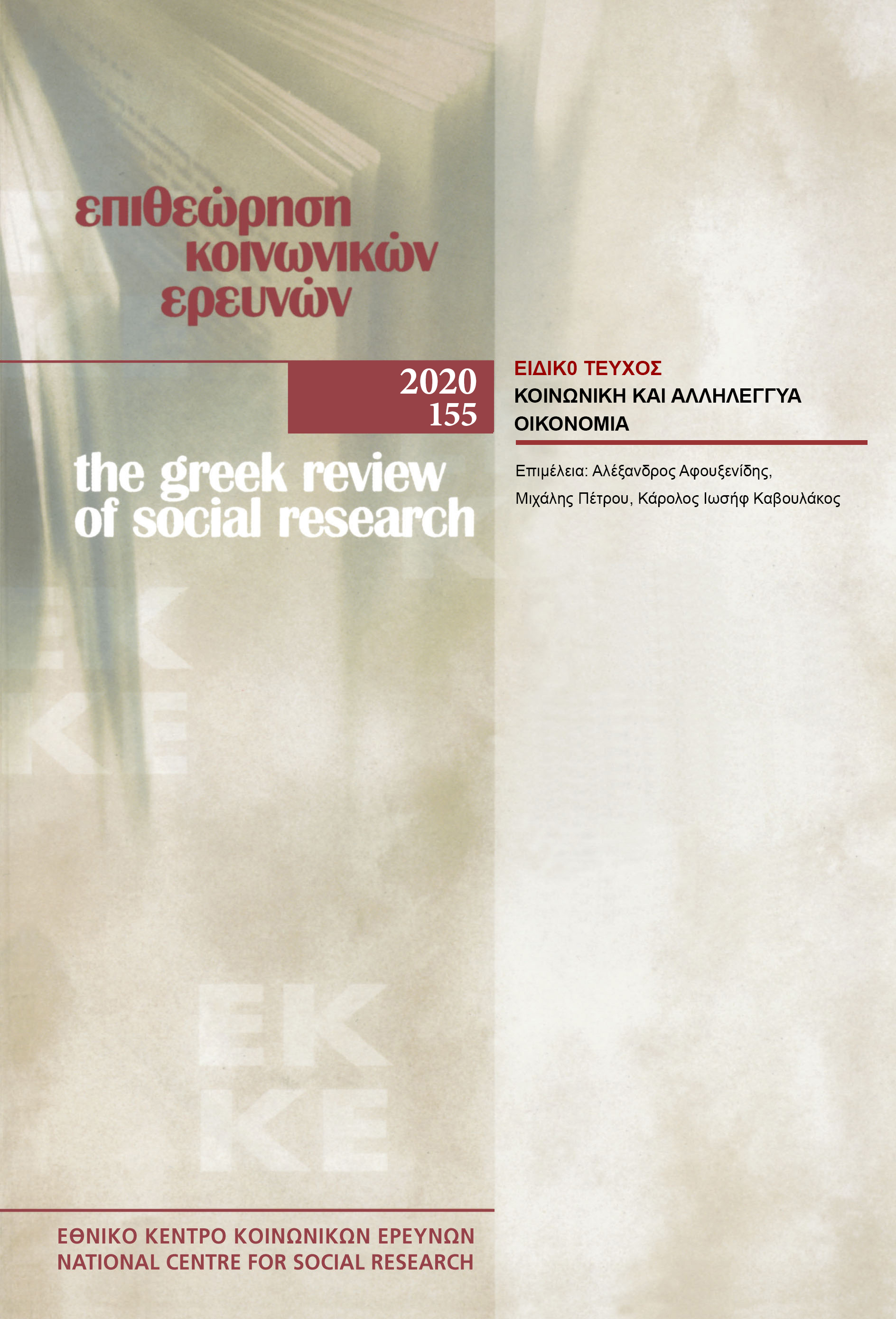Κοινά και εκπαιδευτικός ανασχηματισμός

Περίληψη
Στο κείμενο αυτό επιχειρείται η εισαγωγή του αναδυόμενου παραδείγματος των «κοινών» ως εναλλακτικό αξιακό σύστημα και σύστημα δράσης στο πεδίο της εκπαίδευσης, προκειμένου να συζητηθούν κριτικά οι δυνατότητες ανασχηματισμού της θεσμικής τυπικής εκπαίδευσης, τόσο στο επίπεδο της εκπαιδευτικής δραστηριότητας όσο και στο επίπεδο της διακυβέρνησης της καθημερινής λειτουργίας της, με γνώμονα τις αξίες της ισότητας, της αυτονομίας, της κοινότητας, της συμμετοχής, της συνεργασίας και του διαμοιρασμού. Στο επίκεντρο της συζήτησης είναι η κοινοποίηση ως μια εναλλακτική εκπαιδευτική και μικρο-πολιτική διαδικασία, που αναπτύσσεται στις ρωγμές του επίσημου εκπαιδευτικού συστήματος δημιουργώντας πρακτικές που αμφισβητούν τον κυρίαρχο λόγο για την εκπαίδευση και την κοινωνία. Επιπλέον, διερευνώνται κριτικά οι ομοιότητες και οι διαφορές της εκπαίδευσης των κοινών από άλλες εναλλακτικές προσεγγίσεις της εκπαίδευσης.
Λεπτομέρειες άρθρου
- Πώς να δημιουργήσετε Αναφορές
-
Pechtelidis, Y. (2020). Κοινά και εκπαιδευτικός ανασχηματισμός. Επιθεώρηση Κοινωνικών Ερευνών, 155, 9–38. https://doi.org/10.12681/grsr.24807
- Ενότητα
- Άρθρα

Αυτή η εργασία είναι αδειοδοτημένη υπό το CC Αναφορά Δημιουργού – Μη Εμπορική Χρήση 4.0.
Οι συγγραφείς των άρθρων που δημοσιεύονται στην Επιθεώρηση Κοινωνικών Ερευνών διατηρούν τα δικαιώματα πνευματικής ιδιοκτησίας επί των άρθρων τους, δίνοντας στο περιοδικό το δικαίωμα της πρώτης δημοσίευσης. Άρθρα που δημοσιεύονται στην Επιθεώρηση Κοινωνικών Ερευνών διατίθενται με άδεια Creative Commons 4.0 και σύμφωνα με την άδεια μπορούν να χρησιμοποιούνται ελεύθερα, με αναφορά στο/στη συγγραφέα και στην πρώτη δημοσίευση για μη κερδοσκοπικούς σκοπούς.
Το Εθνικό Κέντρο Κοινωνικών Ερευνών διατηρεί το δικαίωμα να δημοσιεύει, να αναπαραγάγει, να παρουσιάζει στο κοινό, να διανέμει και χρησιμοποιεί άρθρα που δημοσιεύονται στην Επιθεώρηση Κοινωνικών Ερευνών σε οποιοδήποτε μέσο και μορφή είτε μεμονωμένα είτε ως μέρη συλλογικών έργων, για όλο τον χρόνο διάρκειας προστασίας της πνευματικής ιδιοκτησίας και για όλες τις χώρες του κόσμου. Αυτό περιλαμβάνει ενδεικτικά και όχι αποκλειστικά το δικαίωμα δημοσίευσης των άρθρων σε τεύχη της Επιθεώρησης Κοινωνικών Ερευνών, αναπαραγωγής και διανομής μεμονωμένων αντιγράφων των άρθρων, αναπαραγωγής ολόκληρων των άρθρων σε άλλη έκδοση του Εθνικού Κέντρου Κοινωνικών Ερευνών, καθώς και αναπαραγωγής και διανομής των άρθρων ή περίληψης αυτών με χρήση πληροφορικού συστήματος αποθετηρίου.


